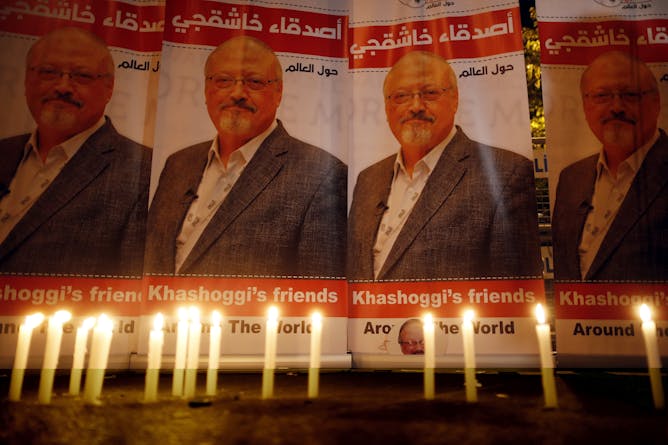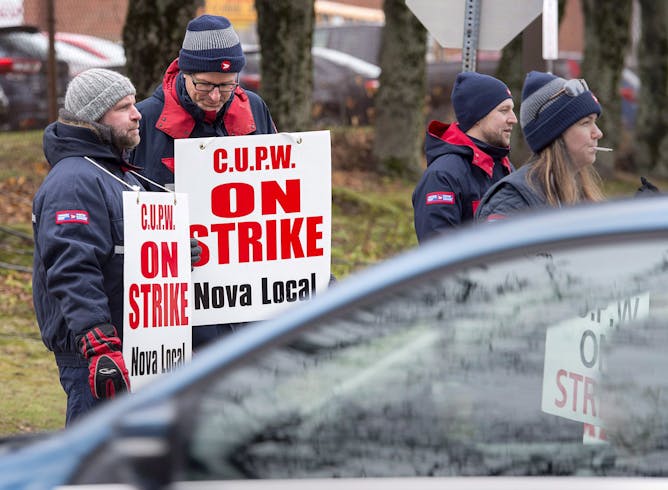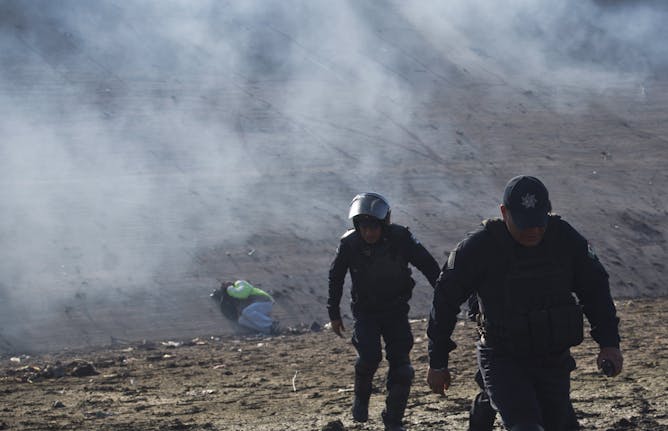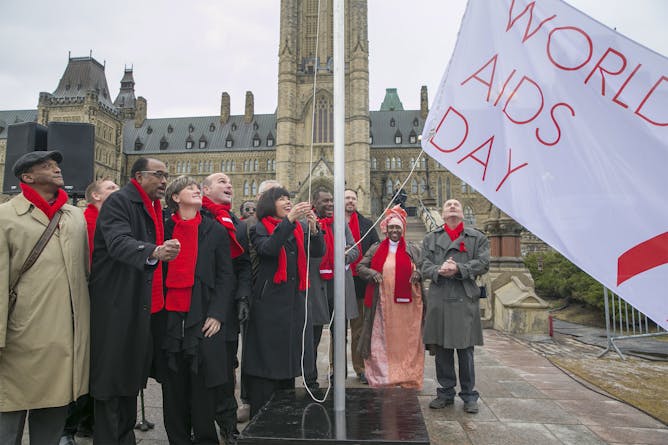|
The G20 meeting of world leaders takes place Friday and Saturday in Argentina. In attendance: Prime Minister Justin Trudeau and Saudi Crown Prince Mohammed bin Salman. Today in The Conversation Canada, Stuart Murray of Carleton University points out the G20 would be the perfect time for Trudeau to raise the killing of journalist Jamal Khashoggi. But if he did that, would it threaten Canada’s $14.8 billion contract to sell armoured combat vehicles to Saudi Arabia? It’s an ethical trade-off known as a “sacrificial economy.”
Canada Post workers were ordered to stop their rotating strikes – good news for everyone waiting for holiday parcels. But is back-to-work legislation actually constitutional? Alison Braley-Rattai of Brock University explores the issue.
The Truth and Reconciliation Commission specifically addressed the health sector by making several recommendations which aim to reduce the stark differences between the health of Indigenous and non-Indigenous people. Debbie Martin of Dalhousie University writes that teaching non-Indigenous health care workers about traditional Indigenous knowledge in health would help close the gap.
Daniel Béland of the University of Saskatchewan warns that Donald Trump’s use of inflammatory rhetoric about immigration should be a warning to Canadians should be alarmed by political populism.
Saturday is World AIDS Day. While great progress has been made against AIDS, Roberta Timothy of York University says it’s time to rethink a policy that makes it illegal if someone with HIV doesn’t disclose their status to potential sexual partners.
And finally...we're launching La Conversation Canada next Tuesday. We encourage all fans of The Convesation Canada to sign up for our French-language edition.
Regards,
|

In this October 2018, photo, candles lit by activists protesting the killing of Saudi journalist Jamal Khashoggi are placed outside Saudi Arabia’s Consulate in Istanbul.
(AP Photo/Lefteris Pitarakis)
Stuart J. Murray, Carleton University
Ottawa's response to Jamal Khashoggi's murder doubles down on “human rights” rhetoric while failing to take action. It's a matter of the death of some in exchange for the livelihood of others.
|

Canada Post workers walk the picket line during a rotating strike in Halifax on Nov. 13, 2018.
THE CANADIAN PRESS/Andrew Vaughan
Alison Braley-Rattai, Brock University
Ottawa has ordered postal workers back on the job, but is it constitutional? We should be circumspect about intervening in the bargaining process and skeptical about claims it's in the public good.
|

Addressing Canada’s health inequities through the health-care system will only take us so far. Real change will require listening to Indigenous stories, which teach about our relationships to one another as human beings, and between us and our four-legged, winged, finned, rooted and non-rooted relations.
(Unsplash/jongsun lee)
Debbie Martin, Dalhousie University
To improve Indigenous health in Canada we need more Indigenous health professionals and more culturally competent health-care providers. We also need to listen properly to Indigenous stories.
|

A Honduran migrant lies on a riverbank as Mexican police move away from tear gas fired by U.S. agents at the Mexico-U.S. border in Tijuana, Mexico, on Nov. 25, 2018.
(AP Photo/Ramon Espinosa)
Daniel Béland, University of Saskatchewan
President Donald Trump's deployment of inflammatory rhetoric about immigration is now in action. Here's why Canadians should be alarmed by populism that preys upon people's insecurities.
|

MP Boissonnault attended World AIDS Day flag raising on Parliament Hill, Dec. 1 2017.
Gov't of Canada/LGBTQ2 Secretariat
Roberta K. Timothy, York University, Canada
In Canada, people living with HIV can be charged with not disclosing their HIV status to their sexual partners. There is evidence that Black men suffer the most under this criminalization.
|
Politics
|
-
Steven Feldstein, Boise State University
President Trump says an alliance with Saudi Arabia is necessary, despite evidence the country's crown prince ordered the killing of journalist Jamal Khashoggi.
|
|
Culture + Society
|
-
João Florêncio, University of Exeter
The tombstone, revolver and grim reaper imagery of the 1980s and early 1990s have cast a long shadow.
|
|
Education
|
-
Robert Nelson, Monash University
Our contemporary education systematically trashes creativity and unwittingly punishes students for exercising their imagination.
|
|